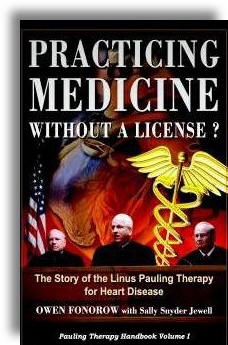"Now I’ve got to the point where I think we can get almost complete control of cardiovascular disease, heart attacks and strokes by the proper use of vitamin C and lysine. It can prevent cardiovascular disease and even cure it." Linus Pauling Interview, Journal of Orthomolecular Medicine, 1994.
Still Have Questions About the Pauling Therapy?
"Every person in America — every person in the world — should be made aware of this discovery. We cannot imagine a valid reason for performing another coronary artery bypass graft surgery, angioplasty, or stent placement . . . without first trying Pauling’s therapy."
~Owen Fonorow, Sally
Jewell, Practicing
The Missing Enzyme
According to Linus Pauling and others, the condition that doctors euphemistically label as "coronary heart disease" is not a disease at all. Rather, it is a symptom of an enzyme missing in humans that is needed in order to make ascorbic acid (vitamin C) from glucose in the liver - the enzyme gulonolactone oxidase, or GLO.
Because humans cannot make vitamin C in the liver like most animals, they require high levels of ascorbic acid in the diet in order to manufacture the vast amounts of collagen required for the maintenance of blood vessels, bones, disks, organs, skin, ligaments, cartilage, tendons, and teeth. The coronary arteries typically suffer the scorbutic (scurvy) effect from the lack of vitamin C and collagen and begin to deterioriate first because they are subject to the greatest degree of mechanical stress from the pumping action of the beating heart.
Without collagen, the ground substance (intima) of the blood vessels becomes weak and watery, which in turn allows lipoprotein(a) cholesterol to penetrate the tissue to "patch" the blood vessels so that they do not rupture and kill you much sooner than a heart attack would.
This patching mechanism occurs because lipoprotein(a) fat (a subset of LDL fat) is naturally attracted to lysine, which naturally is found in an artery wall but only exposed to the fats swooshing by in your blood when the artery is deficient in collagen and thus deteriorating. The process whereby the body utilizes cholesterol in this way in the absence of collagen through vitamin C deficiency is quite miraculous, and despite the bum rap that cholesterol has gotten for years as being the "cause" of heart disease, it is actually a lifesaving response to patch weak arteries.
 | ||||
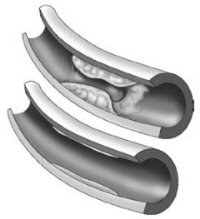
Plaque forms inside the coronary artery as a surrogate to patch it when the artery is deficient in collagen from a chronic high-dose ascorbic acid (vitamin C) deficiency, a condition known as scurvy.
Arterial scurvy is reversed only with intake of the levels of vitamin C recommended by Pauling to make collagen, while the reinforcing plaque is attracted to and eliminated by the lysine component of Pauling's therapy, a/k/a Lp(a) binding inhibitor.
CORONARY
ARTERY DISEASE
News That Should Have Changed the World
Pauling himself indicated during a 1994 Interview when questioned about the significance of these findings:
THE PAULING THERAPY -
IS IT A "CURE" FOR HEART DISEASE?
The Pauling Therapy
Disclaimer: These statements have not been evaluated by the U.S. Food and Drug Administration (FDA). This product is not intended to diagnose, treat, cure or prevent any disease. Tower Laboratories Corporation does not make any health or medical claims for its products. Tower is not responsible for independent third parties who may otherwise represent the efficacy of Tower products. These individuals are not Tower agents and do not have permission to do so. Testimonials are believed to be within the range of typical consumer responses, though your results may differ. Unsatisfactory products sold in the United States of America may be returned for a full refund within 60 days of the original ship date.
Home | Products | Online Store | The Pauling Therapy | Linus Pauling | Testimonials | Policies | Contact
In Pauling's last private telephone interview with reporter Peter Barry Chowka conducted on April 9, 1994, he expressed his dismay that this theory of heart disease wasn't formulated and the disease eradicated decades earlier, stating:
". . . I have trouble understanding why somebody interested in heart disease didn't think of it 20 or 30 years ago when it was accepted by cardiologists that the primary cause of atherosclerosis and heart disease is a lesion in the wall of an artery in a region of stress. So I asked myself two or three years ago, 'Why should there be a lesion in the wall of the artery?' Animals don't have these lesions in regions of stress. Well, you have the lesions because arteries are weak. Why are they weak? Ordinarily, animals' arteries are strengthened by the deposit of collagen. And you can't make collagen without using up vitamin C. Humans don't get enough vitamin C, so their arteries are weak. And then a lesion forms, followed by the other stages of developing heart disease. THEREFORE, DEFICIENT INTAKE OF VITAMIN C IS A PRIMARY CAUSE OF CARDIOVASCULAR DISEASE."

Of important note, this collagen deficiency (usually associated only with skin) is not manifested only in the cardiovascular system but is actually global, ocurring throughout the body in every area that demands collagen for strength and integrity including the vertebral (back) disks, ligaments that hold hips and knees in place, teeth, skin, bones, organs, and even the brain arteries.
A study published in the October 16, 2013 online issue of Neurology®, the medical journal of the American Academy of Neurology, provides overwhelming evidence that dementia and Alzheimer's patients are known to have pronounced arterial plaquing, which Pauling's theory conclusively proves is caused by the body's "patching" of weak brain arteries due to collagen/vitamin C deficiency.
This process is also responsible for the conditions of peripheral vascular disease, carotid artery disease, aneurysm, stroke, and often even erectile dysfunction where the penile arteries have also developed reinforcing plaque. In fact, erectile dysfunction is often an early marker for coronary heart disease in men. Tower Labs continues to receive feedback from users who are experiencing effective relief of erectile dysfunction through the use of Tower's Pauling therapy products.
The Pauling therapy is not a frank "cure" for this chronic scurvy condition that causes heart attack and a host of other diseases because it does not replace the body's missing GLO enzyme that allows it to make collagen from vitamin C (the true disease). Rather, Tower's Pauling therapy formulas replace the nutrient - vitamin C - that other species WITH the enzyme are able to make that prevents them from suffering from coronary heart and cardiovascular diseases.
LEARN MORE ABOUT VITAMIN C AND HEART DISEASE IN OUR BOOKS AND DVD, AVAILABLE FOR PURCHASE NOW.
The Problem - U. S. RDA Causes Arterial Scurvy
The miniscule amount of vitamin C in the U. S. RDA of 90 mg for men and 75 mg for women will prevent death from the vitamin C deficiency disease scurvy but is not nearly sufficient for the body to make enough collagen to maintain the strength and integrity of its entire cardiovascular system as well as bones, cartilage, organs, disks, ligaments, tendons, etc.
The amount of daily vitamin C necessary to treat latent or chronic scurvy, also known as human atherosclerosis, is nearly 100 times higher than the current RDA. No human who consumes the RDA of 90 mg or less is immune to coronary heart and cardiovascular disease. In fact, Pauling's research concluded that daily intake of no less than 3,000 mg in divided doses throughout the day is required for adequate collagen synthesis and protection from heart disease, and that daily intake of no less than 6,000 mg is required for those with diagnosed heart disease.
Based on the following table it is easy to see why heart disease is the world's number one killer, statins the number one selling pharmaceutical drug, and cardiology the most lucrative medical industry.
Lipoprotein (a) (Lp(a)), discovered in 1963, is a low-density lipoprotein cholesterol particle whose presence in the blood represents a high risk factor for coronary heart disease, cerebrovascular disease, atherosclerosis, thrombosis and stroke. HOWEVER, we have learned from Linus Pauling that this is only the case when vitamin C intake drops below 3,000 mg daily and collagen levels are too low to support strong arteries. Only then does Lp(a) attach itself to the weakest areas of the arteries by virtue of the exposed lysine within the damaged artery wall. Unfortunately, testing for Lp(a) is not typically performed during routine cholesterol testing and thus, most people are unaware of their rising Lp(a) due to a weakening of the coronary arteries because of this collagen deficiency and the risk of Lp(a) then attaching to those weak and deteriorating arteries as a patch.
Based on this finding, Linus Pauling and his associate Matthias Rath formulated in 1989 A Unified Theory of Human Cardiovascular Disease which was published in the Journal of Orthomolecular Medicine in 1992 and invented what Tower has coined as the "Pauling therapy" (vitamin C/lysine and other nutrients) treatment for heart disease.
Vitamin C and lysine in large amounts (and smaller amounts of proline and other nutrients) become Lp(a) cholesterol binding inhibitors that restore vascular health and are patented to release atherosclerotic plaques on a safe, slow, molecular level. Pauling's experiments proved that "simply administering the proper nutrients, in the proper combination, at the proper dosage could eradicate heart disease." NOTE: Most Pauling therapy users report elevations in cholesterol in the months after beginning the Pauling therapy, which indicates clearly that Pauling was correct and the proper combination of C and lysine will cause a release of fatty plaques from the blood vessels. In time (6-9 months depending on the amount of fatty plaque that must be released and cleared from the body by the liver) blood cholesterol levels begin to fall, as evidenced by William Cook's testimonial of his own experience with this phenomenon.
Pauling's findings were published in the Proceedings of the National Academy of Science (1990, Vol 87, pp 6204-6207). Pauling was awarded a patent on his formula, Patent #5,278,189, Jan. 11, 1994, Prevention and Treatment of Occlusive Cardiovascular Disease With Ascorbate and Substances that Inhibit the Binding of Lipoprotein (a).
Nearly Three Decades of Proof
Tower's experience since 1996 demonstrates that replacement dosages of ascorbic acid (vitamin C), lysine and the other nutrients in the amounts recommended by Linus Pauling rapidly reverse the symptoms of heart disease in most people including angina, atherosclerosis, high blood pressure and high cholesterol, and thereby nearly eliminate the risk of heart attack and stroke.
The science behind Tower's products and the effectiveness of the Pauling therapy are explained and corroborated by 19 years of positive customer testimonials and are now documented in the following resources:
Practicing Medicine Without a License? The Story of the Linus Pauling Therapy for Heart Disease (which outlines Pauling's recommendations, Tower's 19-year Pauling therapy history, and successful Pauling therapy case histories) by Owen Fonorow and Sally Snyder Jewell
Stop America's #1 Killer! (which cites more than 650 supporting scientific studies) by Thomas Levy, M.D., J.D.
Heart Disease - Unified Theory of Cause and Cure DVD lecture on the subject made by Linus Pauling himself.
Know Your Own Lp(a) Score!
The Lipoprotein (a) test is seldom ordered by physicians in routine cholesterol testing, likely because there are no known pharmaceutical drugs that will lower it but also because most doctors continue to remain ignorant about the importance of this test.
Nearly half of all people who suffer heart attacks have normal cholesterol panels but elevated Lp(a). You can obtain your own Lp(a) measurement by asking your doctor to order an Lp(a) test at your next office visit. This is especially important for those with a family history of elevated Lp(a) levels and/or a family history of premature CAD; or if you have heart disease but your lipid profile is normal or shows only mildly elevated levels of cholesterol and/or low-density lipoprotein cholesterol (LDL-C).
Knowing your score at the time you begin the Pauling therapy is a good way to gauge how effectively the therapy is working to lower your Lp(a) due to its natural Lp(a) inhibiting properties. Remember, though, that even with high genetic levels of lipoprotein (a) you are not necessarily at risk for artery blockages if your intake of ascorbic acid is adequate (greater than 3,000 mg daily for an average sized adult) to maintain the integrity of the cardiovascular system (collagen) so that it does not require "patching" with Lp(a).
Be sure to ask the testing facility whether your Lp(a) score will be measured (true value) or computed (estimated value). If the test is not available through your doctor or if he knows conclusively that the laboratory performing the test simply computes Lp(a) values, you can also ask your doctor to order a lipoprotein (a) test from Life Extension Foundation.

702-876-5805
Along the same lines, primates also cannot make vitamin C, and despite the abundance of information available about vitamin C and its role in the prevention of cardiovascular disease and heart attacks, zoo keepers worldwide are still shocked and bewildered when gorillas and other primates suddenly drop dead from fatal heart attacks, resulting from low levels of collagen because of inadequate ascorbic acid intake in their daily diet. As with humans, small amounts of

Even veterinarians recognize this cardiovascular and heart disease threat to guinea pigs, who also lack the GLO enzyme with which to make vitamin C from glucose (and subsequently collagen) and GUINEA PIG FOOD IS FORTIFIED WITH 8 TIMES MORE VITAMIN C THAN WHAT IS RECOMMENDED BY THE FDA FOR HUMANS!

vitamin C protect them from scurvy, though without very high intake daily they are not protected from cardiovascular deterioration or blockages.
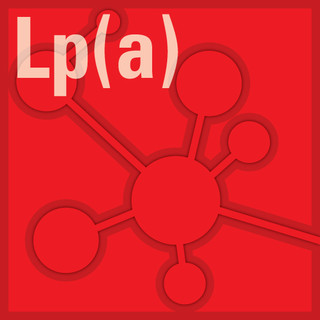
The results of a large U.S. study, published in The New England Journal of Medicine in 2003, suggest that among older adults in the United States, elevated Lp(a) lipoprotein is an independent predictor of stroke, death from vascular disease, and death from any cause, especially in men. These data support the use of Lp(a) lipoprotein level testing in predicting the risk of these events. See Lp(a) Lipoprotein, Vascular Disease, and Mortality in the Elderly. See Also Report of the National Heart, Lung, and Blood Institute Workshop on Lipoprotein(a) and Cardiovascular Disease: Recent Advances and Future Directions.
The Discovery - Lipoprotein (a) Cholesterol
The Invention - Lipoprotein (a) Binding Inhibitors
In 1987 Lipoprotein(a) - Lp(a) - cholesterol molecules were found to contain "lysine binding sites" that are responsible for the deposit of plaques on the walls of arteries when they are deficient in collagen, which results from too little vitamin C intake (arterial scurvy). Arteries deficient in collagen deterioriate and their walls become weak. Plaques are the body's way of "patching" these failing arteries to prevent them from rupturing. This occurs because of something called the "lysine binding site" on the Lp(a) molecules circulating in the blood. When this damage occurs to the tissue of the artery wall, it exposes the amino acid
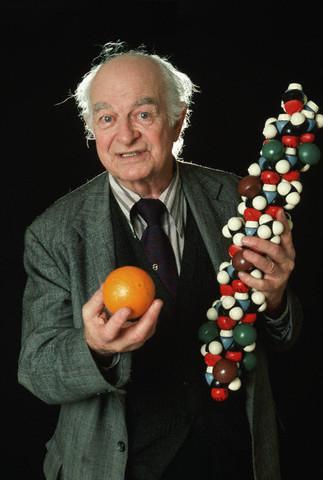
lysine within the tissue. Because Lp(a) has a natural attraction to lysine, it sticks to the lysine in the damaged artery walls and creates a natural plaster "cast" that shores up the arteries. Without this repair mechanism the arteries would rupture or leak blood and cause death from this chronic form of scurvy much sooner.
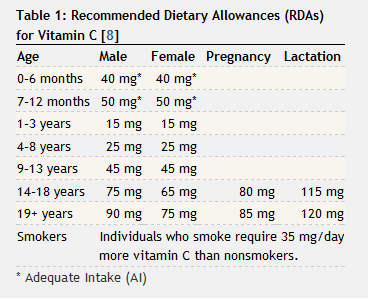
702-876-5805
Made in the U.S.A. • Copyright © 2008 • All Rights Reserved.
Tower Laboratories Corporation • 3395 S. Jones Blvd., #349 • North Las Vegas, NV 89146
(702) 876-5805


